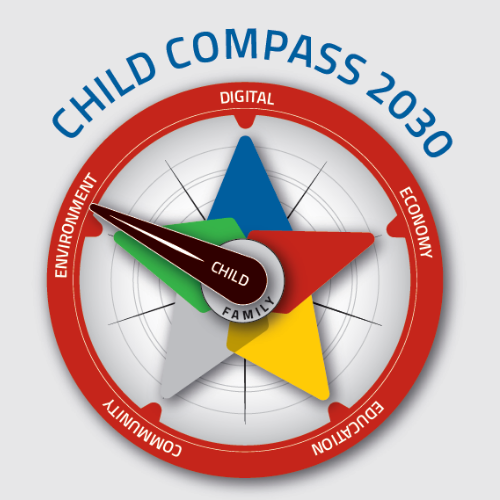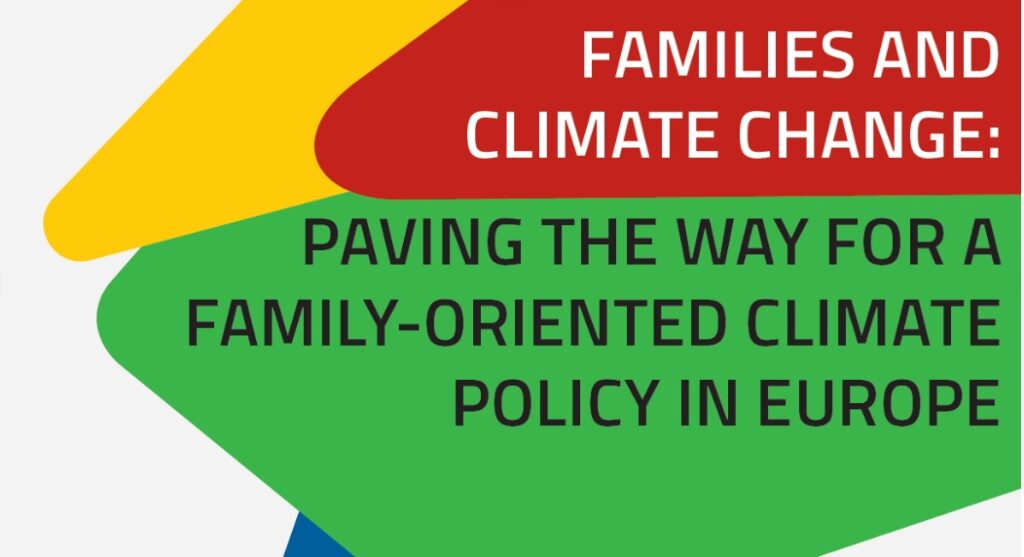#WorldChildrensDay #ChildCompass2030 #ForEveryChild
On this Universal Children’s Day COFACE Families Europe is releasing its “Child Compass 2030: For a Europe which invests in shaping a healthy society, environment and economy fit for children” bringing a family perspective to policy-making based on the interrelated well-being of children and of their parents.
All children are entitled to a healthy and fair start. To ensure this, we need an approach looking at their interlinked surroundings of influence in a holistic way. COFACE Families Europe endorses this approach, highlighting it in detail in its Child Compass 2030 and calls on the European institutions to invest in child well-being and to shape a healthy society, environment and economy fit for children.
Putting the well-being and development of children at the centre by no means collides or conflicts with concepts and positions of a family orientated policy, on the contrary. It is the family that is the indispensable place where people stand up and take responsibility for each other.
“Parents and caregivers play a central role in childrens’s live. In so many fields the solution begins at home. Families can be considered as natural social security system. We are convinced that children will thrive if their family thrives and if the whole society cares enough to provide for them. It is fundamental that European and National policies champion children and their families’ well-being and bring families and children to the heart of policy making” says Annemie Drieskens, President of COFACE Families Europe.
With this Child Compass, COFACE Families Europe provides a comprehensive, integrated and long-term strategy to develop appropriate 21st century policies to support both children and their families. The Compass offers a conceptual framework situating the child and their family at the core of a system with 5 priority and interlinked spheres of influence on individual child and family health and well-being: Education, Community, Digital Technology, Economy, and Environment.
Policies must prioritise investing in children and their families and ensure that adequate and quality support is provided through a systemic two-generation approach based on the interrelated well-being of children and their parents. This means that policies focusing on children’s well-being must support families and their inherent capabilities with a focus on empowerment, participation, and strengthening competences of all families in their daily lives.
This includes actions to support parents in their fundamental role, filling gaps in education, training, social inclusion, parenting skills, psychological well-being, access to services, employment and income, while also looking beyond social policy.
In this context COFACE Families Europe welcomes the commitment of European Commission President Ursula Von der Leyen to build a European Child Guarantee, a promising initiative that could offer a renewed opportunity to boost further the implementation of the European Pillar of Social Rights and the UN Convention on the Rights of the Child (UNCRC), supporting Member States in their efforts. However, we should not stop here. This is why today, at the Universal Children’s Day, we urge the European Commission, the European Parliament, the European Council and especially the German EU presidency to progress in the realistion of the Child Compass 2030.
END//
For more information, please contact Isabell Wutz, Communication Officer iwutz@coface-eu.org
Note to editor
COFACE Families Europe is a European network of civil society associations representing the interests of families (all types, without discrimination).
COFACE’s areas of work include social/family policy, education, disability, gender equality, migration, consumer issues, and also protection of children online, privacy, data protection and reflections on technological developments and how they may impact families. More: www.coface-eu.org





